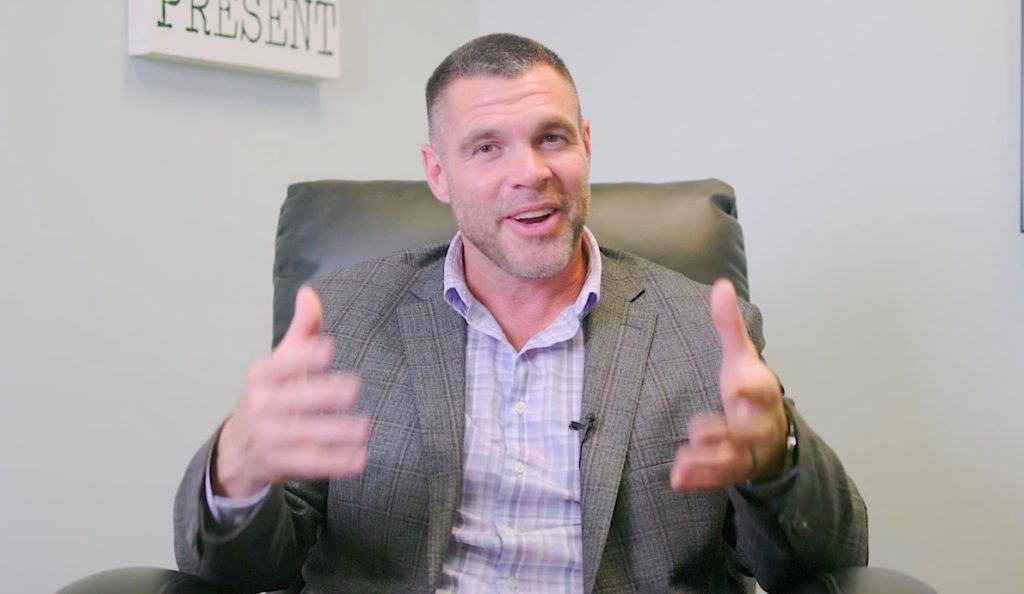Why you can be hypnotized even if you don’t believe it
Hypnotherapy induces a natural and relaxing trance state
• “I don’t think I can be hypnotized! I get distracted!”
• “I’m sure I can’t be hypnotized – I’m too strong-willed!”
• “I can’t be hypnotized; I’m terrified of handing over control to someone else!”
We ‘in the trade’ hear this all the time. Over the years, I’ve heard variations on the above over and over. It all comes back to one thing: a misunderstanding as to what hypnosis is and isn’t.
First off, everybody can be hypnotized. Yes, even you!
Once you understand that each and every one of us can be hypnotized, you can stop wondering about whether you can be hypnotized and focus on how you can be.
Even worrying about whether you can be hypnotized is a type of hypnosis
That’s right. During therapeutic hypnosis, your attention can drift inwards as you focus on the contents of your own thoughts and imaginings. Worrying is so hypnotic that we can be very inwardly absorbed for a few seconds and not hear someone calling our name. So, reflecting inwardly as to whether you can or cannot go into hypnosis is a light hypnotic experience in itself!
And if you couldn’t be hypnotized…well, that wouldn’t be natural.
Hypnosis is natural and happens anyway
Hypnosis happens in many kinds of ways, at different times of the day and night .It happens when we go into shock, when we’re surprised, fascinated, and dreaming at night. So if you have ever had a night-time dream (and believe me, you have, even if you’ve never remembered one), ever learnt anything, ever had your mind wander and forgot to pay attention to someone talking, or ever worried about something, or got deeply absorbed in a task, you have been hypnotized. And you’ll notice than all of these everyday examples are ‘self-hypnosis’, that is, these experiences all happen within you without any input from another person.
Emotional problems, from addiction and depression to phobias and fears, all focus the attention narrowly and ‘program’ us with certain feelings that become automatic and eventually work, in effect, just like post-hypnotic suggestions. The beer acts like a post-hypnotic prompt for the smoker to light up. The phobic hears just the word ‘spider’ and post-hypnotically feels sick. So even problem states have a hypnotic element to them, and we use controlled therapeutic hypnosis to overcome the negative effects of such ‘life hypnosis’.
What people often really mean when they worry over whether they can be hypnotized is: “Can I be hypnotized in a formal hypnotic situation such as by a hypnotherapist?”
Am I really hypnotized?
People assume that if they stop hearing the hypnotherapist, they must have fallen asleep; but if they hear them all the time, they weren’t really hypnotized. Sure, some people fall asleep, but if the person comes back at the end of the session to suggestions to open their eyes, then they certainly were not in a deep sleep and were probably just in a deep state of hypnosis. Those who can still hear the hypnotherapist (yes, you can still hear when you enter hypnosis) might think they haven’t been hypnotized, assuming that the conscious mind has to go away completely for hypnosis to happen. The fact is that there are degrees or ‘levels’ of hypnosis and you can get great benefit being in a light level of trance. Sometimes you will go deeply, sometimes you experience lighter levels – and that’s fine.
Am I awake or not?
Sometimes conscious processing stops altogether during hypnosis but more often than not a person will experience a ‘parallel awareness’. This means that the conscious part of them can still think, analyze, and so on, even as their unconscious mind responds to suggestions. Someone might not believe they are in hypnosis, but suddenly be surprised to find that they have lost the pain they were feeling in their arm as the hypnotist suggests they feel more comfortable. Someone may believe themselves unhypnotized, but find after a session that they no longer wish to smoke or suddenly feel a lot more relaxed in a previously troubling situation. So, being hypnotized may feel different, like ‘entering a new world’, or it may feel quite normal because, well…it is.
More or less hypnotic
Some people are naturally more hypnotically talented than others and can go into hypnosis at the drop of a hat or the command of a stage hypnotist. Other people need to practice going into trance in a formal hypnotic situation. But everyone can become better at focussing their mind so they more easily do it. People who develop phobias, have persistent post traumatic stress disorder, or easily get angry or depressed tend to be good hypnotic subjects. It’s just that they need to use hypnosis to enable them to learn healthier ways of being.
Creative people tend to make great hypnotic subjects, as they can already focus their minds and make connections. Those who can concentrate or who are high performers tend to also enter hypnosis easily as they are naturally able to concentrate and block out distractions. In this way, having strong willpower helps you become hypnotized; so ideas of “I’m too strong-willed to be hypnotized” don’t really mean anything.
Becoming easily distracted may seem to block hypnotic experience. But a gifted hypnotist will have the flexibility to even use distractions to help someone go into hypnosis. This is known as ‘The Utilization Principle’, which means the flexible therapist should use whatever the client or hypnotic subject brings to the situation, even a ‘scattered mind’, in order to help them.
When you enter hypnosis, you still have free will and options of response. A suggestion is just that, not an order. We use hypnosis to help people gain more control over behaviours that had been controlling them, such as smoking, fears, phobias, depression, anxiety or insomnia.
Hypnosis is a tool, the medium through which the mind and body learn. Some levels of hypnosis are so light they seem little different from everyday awareness and some are so deep you feel you’ve entered another realm or ‘went somewhere completely different for a while.’ But hypnosis is natural to all and everyone; the right approach will enable anyone to go into hypnosis and that includes you!


